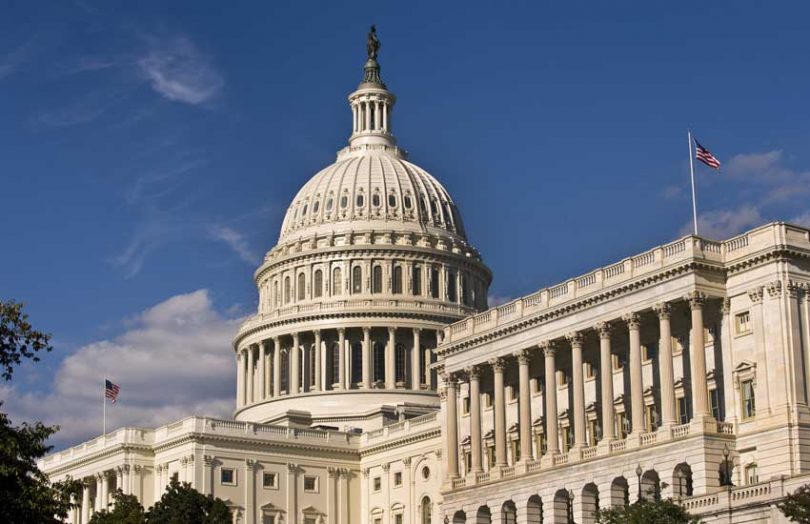During today’s Congressional hearing about central bank digital currency (CBDC) multiple Members of Congress expressed reservations about a digital dollar. While most of them were Republicans who believe payment innovation should be left to the private sector, the divide was not entirely based on party lines.
The specter of China leading the way in establishing standards and using the digital yuan for cross border payments featured heavily during discussions. As did China’s ability to monitor and potentially block private payments.
Congressman Patrick McHenry (Republican) was particularly concerned about this latter point. “If we don’t move as Americans, international settlements, remittances, could go to a regime that we’d not like. But domestically, Mr (Professor) Levin raises this issue of the cost of payments,” said McHenry.
Domestic versus cross border
He concluded that there are two separate questions, one international and the other domestic. And hence he believes perhaps there could be two approaches, a CBDC for international use and regulated stablecoins for domestic use.
Democrat Congressman Jake Auchincloss had similar concerns to McHenry. He said, “I found the case for CBDCs for geo-economic and strategic purposes very compelling. And I understand why the United States needs to catch up, both to retain its economic leverage, (and) retain the U.S. dollar as the (global) reserve currency.” On a related point, several members raised the topic of retaining the United States’s ability to enforce sanctions.
However, Auchincloss also had major reservations about a CBDC for domestic use cases. And he too wondered whether it would be possible to progress an international CBDC and hold off domestically.
Multiple witnesses responded that it makes sense to iron out issues domestically before moving to international. Yaya Fanusie from the Center for a New American Security painted a clear picture: “If we are in a forum and it’s a bunch of countries, central banks, across the table, and China puts all this data, all these examples of how its trials have worked domestically, what do we have? Just theoretically how things should work?” Although he noted that, of course, the U.S. would have a seat at the table.
Blurring lines between fiscal and monetary policy
Auchincloss also expressed concerns that if the Federal Reserve made payments directly to citizens, whether this wasn’t fiscal policy and outside of the Fed’s remit. Several Members of Congress expressed similar concerns, while others, such as Congresswoman Ocasio-Cortez, noted how direct Fed payments might have reduced delays for COVID relief payments.
She was followed by Republican Warren Davidson, who asked the witnesses whether it was more important for the U.S. dollar to remain the world’s reserve currency or that the United States has sound money. All the witnesses responded that they go together. Congressman Davidson then argued that helicopter money was destroying the dollar, which is why there’s interest in other currencies.
Privacy and surveillance
He continued, “There’s a coveting of the power that China would have by being able to create this creepy surveillance tool. Of being able to know everything about every person, including every transaction. And frankly the ability to filter those transactions through the power of the state. I guess, if you’re a statist, you would actually love that tool.” Congressman Davidson went on to raise concerns about negative interest rates and how the Fed could potentially put expiration dates on people’s money balances. He concluded that a CBDC would need to be permissionless.
Fellow Republican Tom Emmer followed up with more soundbites. “The benefit of having a digital dollar would only come to fruition if it were open, permissionless and private,” he said.
“Any attempt to craft a central bank digital currency that enables the Fed to provide retail bank accounts and mobilizes the CBDC rails into a surveillance tool able to collect all sorts of information on Americans, would do nothing, other than put the United States on par with China’s digital authoritarianism.”
Meanwhile, Congressman Bill Foster expressed an interest in interoperable digital identity, so one could say, “you cannot use digital dollars because you’re an identified terrorist.” He was talking about both CBDC and stablecoins. Dartmouth Professor Levin said that nobody should be required to have a digital identity. However, if they don’t have one, they can’t use that system.
Congressman Foster recognized that “we will set different standards, but it’s not different than what the Chinese are doing. The only difference is we are going to designate terrorists. We’re not going to designate Hong Kong democracy protesters as terrorists and they are. And that’s really the only difference.”
Levin responded that it is different because the key reason for the two-tier system is to protect privacy, so there needs to be a court order or search warrant to access the private details.
One final point relates to timing. While the general opinion was that the United States is lagging when it comes to CBDC work, witnesses didn’t see any immediate threats to the dollar’s reserve currency status. Or not until another digital currency is used at scale for cross border payments.






